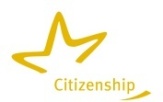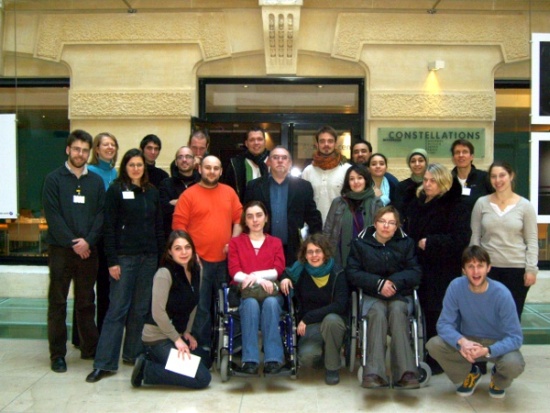Das Netzwerk Migration erhält seit 2006/2007 eine Betriebskosten- finanzierung von der Europäischen Union.


With the support of the European Union: Support for organisations active at European level in the field of active European citizenship.
Projekte
Grundtvig Learning Partnership Project


This project has been funded with support from the European Commission.
This publication/communication reflects the views only of the author, and the Commission cannot be held responsible for any use which may be made of the information contained therein.
Grundtvig Learning Partnership Project
„Mentor Development Programmes: Transforming learners into educators supported by e-communication tools”
German Project No.: 2009-1-DE2-GRU06-018172
Duration: 1. August 2009 – 31. July 2011
Project Blog: www.mentordevelopment.blogspot.com

Final Publication:
"Transforming Learners into Educators: Mentor Development Success Stories" by the partners of the Grundtvig Partnership Project "Mentor Development Programmes – Transforming learners into educators supported by e-communication tools", September 2011.
This project is also featured online on European Shared Treasure.
Partner Organisations:
Network Migration in Europe, www.network-migration.org (Antje Scheidler)
Association of Disabled Women ONE.PL,www.onepl.org.pl/english.htm (Magda Szarota)
Cercle Passeport Télécoms, www.passeport-telecoms.com (Benjamin Blavier)
Foundation Critical Mass, www.criticalmass.nu (Hiske Arts / Bas Gadiot)
Humanity in Action Germany., www.humanityinaction.org (Anne Stalfort / Senior Fellows)
Humanity in Action France, www.humanityinaction.org (Tara Dickmann / Senior Fellows)
Goals and expected results:
Six European organisations cooperate in the Learning Partnership “"Mentor Development Programmes: Transforming learners into educators supported supported by e-communication tools”. The partners already - on a small scale – use mentor development and mentoring programmes as a tool to increase learners´ participation and sustainability of adult education. During the learning partnership they exchange best practices, identify successful core elements and learn about e-tools to support mentor development and mentoring programmes and make them more accessible to learners with special needs. These e-tools include online learning platforms, web conferences, blogs etc.
The partner organisations take turns in hosting meetings and present best practices of mentoring programmes they (or cooperation partners in the country) are experienced with. The identified transferable elements of successful programmes will subsequently be shared with co-staffers and learners in each partner organisation and implemented. Special attention will be paid to e-tools allowing inclusion of learner communities with special needs, i.e. in rural areas, with mobility problems, with a migrant background, and/or in need of more flexible learning schedules.
The work progress is accompanied by the compilation of “mentor development success stories” with the title “How I became a mentor”. The success stories are developed in cooperation with learners, who are in the process to become a mentor within a partner organisation.
The success stories will be published online and in the partners´ newsletters, as well as edited as pdf-booklet which is send to cooperation partners interested in mentoring programmes. The project also reaches out to wider learners´ audiences by involving the success story protagonists as multiplicators who disseminate the results using their own communication channels.
The overall goals of the learning partnership are:
a) development of innovative practices and services in adult learning
b) more sustainability of educational services of the participating organisations
c) long-lasting participation opportunities for the learners of the participating organisations
d) better services and easier access for learners with special needs
The chosen approach to reach these goals is: Transforming learners into educators through mentor development programmes
The concrete steps to reach the goals are:
Step 1: Identify successful mentoring and mentor development programmes
Step 2: Identify successful e-tools supporting these programmes
Step 3: Identify transferable core elements for success
Step 4: Implement these elements in the partner organizations in cooperation with learners who are in the process to become a mentor within a partner organisation ´
Step 5: Enable these future mentors to become protagonists of a “success story”
Step 6: Disseminate the “success stories” to learners´ communities and other educational organisations.
All info on the project blog: mentordevelopment.blogspot.com